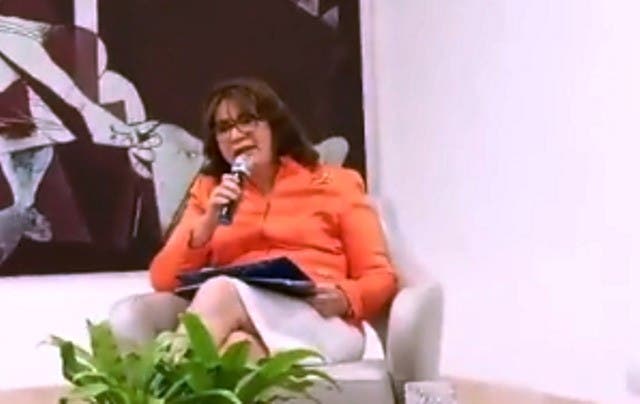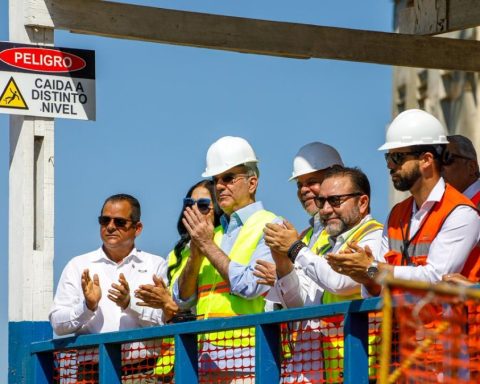The partner and founder of the Brava consultancy assured that on the road to equity there are a number of challenges to face. “We do not start from the same point as a man, unpaid work, if we have children, no way, the wage gap, but there is also a reality that many times the opportunity does not even come to us, because it is assumed, for example, that if I want to be a mother I will not be interested in that leadership position because I have to travel a lot”, highlighted the expert in advising organizations so that they can develop diversity and gender policies.
Botta participated in the cycle 5 questions to 5 women of The Observer for this one women’s month and gave her vision on the challenges that women still face and the achievements already achieved.
Look at the video:
1. What do you think are the main expressions of inequality experienced by women today?
There are a lot, but the most important is gender-based violence. In Uruguay, two thirds of women were once victims of gender-based violence and sometimes we naturalize it, being yelled at for something on the street that we didn’t ask for, micro-aggressions, those aggressions that are repeated over time in the workplace , in the public space. There is a very big challenge regarding the underrepresentation that we have in leadership positions at the private and political level. We are underrepresented in all spheres. And there are causes that are key when it comes to explaining inequality, which have to do with unpaid work, such as care tasks carried out by women who are naturalized at a social level and I’m not just talking about maternity. Women allocate (according to data from a World Bank report) 20% of our time to housework while men only 9%. Another thing that does not seem minor to me is the wage gap. Women with the same work, time and task, in Uruguay we earn 31% less than men, while we have an average of two more years of training, that is, it is not a matter of being trained. There are also intersectionalities, if in addition to being a woman you are from a critically vulnerable context or you are Afro-descendant or from the LGBTQ+ collective that is accentuated and increasingly challenging.
2. How can people and organizations contribute to change?
I think that’s the only way there will be a change, when we realize that this is about people. At the end of the day, this has to do with each person, in their uniqueness, being able to be themselves and feel comfortable with who they are, because that allows us to feel that we belong, to develop successfully, to trust ourselves to develop. Organizations are people and sometimes we forget about that. All people can be part of the solution to that problem and contribute to change. That is where the issue of privilege appears, which is very important to put on the table when talking about this issue and I speak about it from my place of privilege as a middle-class white woman who was able to go to university, what I see, what I hear and what I have health. The first thing is to put the conversation on the table, then as an organization define what equity is, what we are going to commit to and in what way. Data kills story, we have a great opportunity. Undoubtedly, the only way to address this challenge is from reality and it has to do with people understanding that they have something to give. Doing it professionally is important. This topic is important for building teams. Regarding organizations having a budget, this issue is no longer something that is desirable to work on, it is something that must be talked about. Organizations are always in time to put the issue on the table, the important thing is to start.
3. What challenges do women aspiring to leadership positions continue to face?
Challenges of all kinds. We do not start from the same point as a man, unpaid work, if we have children, no way, the wage gap, but there is also a reality that many times the opportunity does not even come to us, because it is assumed, for example with maternity, that if I want to be a mother I will not be interested in that leadership position because I have to travel a lot, or it is assumed that in dealing with unions or large groups of people I will not be able to because I am a woman, because of that femininity bias that I have to be tender and soft. And when there is a determined woman, with an attitude and who leads, we can understand her as aggressive, that is understood as the unconscious biases that have to do with what they tell us from birth, limiting beliefs. What seems important to me and affects women a lot when it comes to leading is that we are all victims of these biases, there is no way to get out of it. What happens is that when it comes to recruiting a woman or filling a vacancy in leadership, generally most of the companies in Uruguay are led by men and the larger the companies, the fewer women in leadership. Sometimes we assume that those who want to be mothers do not want to have an ambitious professional life and that is wrong. This has to do with diversity, with the uniqueness of people and we women have to be aware that we have these difficulties.
4. What were the most challenging challenges in your career?
The biggest challenges were always mine with me. I realized all these barriers and challenges when I was older and at first I began to torture myself, how I didn’t see it before, how I didn’t stand firm or negotiate before. I tended to think that when those barriers appeared it was my fault, I had not prepared myself enough, I had not prepared myself better and I began to share and talk about these issues and I began to realize that it happened to many people. Challenges at the leadership level, of appropriating my value from the things I achieve, letting other people take credit for a job I did. I think it’s always one on one. The challenge is in the conversation with oneself because when I managed to appropriate my value, my way of looking at the world also changed. For me the challenge is always with me, how I look at myself, how I hug myself, how I see my career. This is to always put people in the center and be consistent from my place as a person. To me doing Brava, apart from being a company that generates impact, challenges me on a personal level in that conversation about how I want to be remembered from an honest place of allowing myself to change my opinion of myself and others. With these topics we have to understand that sometimes there are a lot of blind spots that not all people can see and I think it is always good to build and generate spaces for conversation. This is not a war. It is about all of us being better. I think we have to be very strategic about how we make that visible and there the change will be much faster.
5. What would you highlight as the main achievements of the women’s movement?
I believe that the conquest is not only for women but for society as a whole, because for this to progress we all have to be part of the conversation. I think we’ve put the issue on the table and we’ve created a safe space for a lot of women and men who are interested in these issues to feel more secure in sharing it openly. In Uruguay it is associated with a certain fanaticism that if I like it, it is because I belong to a certain political party or have a certain ideology, as if I were a Nacional-Peñarol, but I think that luckily we are beginning to understand that this has to do with being all and all better. In the case of the private sector, this translates into better businesses in better teams, but at the level of life design and in the post-pandemic, if we really want a society in which we can design the life we want to have, balance work and life family or whatever they prioritize in their lives we need to generate a conversation from all parties, there will not be a solution only on the side of women. Yes, it seems to me that we are understanding to build bridges, to recommend a woman not to go to an event if there are no women on a panel and to give a woman forward because there is also this historical thing of divide and conquer, how divine the talk but how ugly the shoes. I think that this is changing that we are beginning to be more empathetic and understanding that when we start to collaborate we are all going to promote a change and also invite society to do it with us because it makes no sense to do it alone.
















